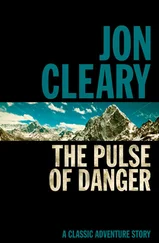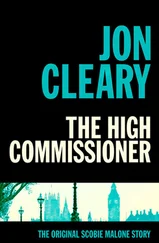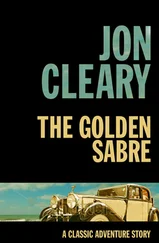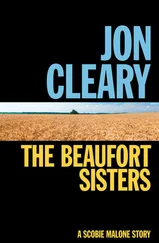1 ...7 8 9 11 12 13 ...18 ‘He isn’t – his bed hasn’t been slept in. And I’ve had a chap in here who tried to kill me.’ He didn’t mention Bridie. The attack on her had been accidental, he was certain, and he wanted to protect her from any further involvement.
The two bearers hissed with shock, looked over their shoulders, waiting for another attack. The butler said, ‘I regret that, sahib. It has never happened before. His Excellency will be most disturbed –’
‘I’m sure he will. Karim, get down to the guard-house, get the guard up here on the double –’
‘You can call them on the telephone, sahib.’ The butler lifted a big red velvet cover, like a huge tea-cosy, from a side-table, exposing a telephone. ‘We have every modern convenience.’
Every modern convenience but an effective guard system. Farnol called the guard-house and a minute later there was a banging on the front door. The butler, moving with all the dignity of a State occasion, went to the doors and opened them. Three soldiers came plunging in, a sergeant and two rankers, one of them Private Ahearn.
‘How many did you have on picquet tonight?’ Farnol demanded.
The sergeant blinked in the light; he, too, had been sound asleep down in the guard-house. ‘May I ask who you are, sir?’
‘Major Farnol.’ He saw Ahearn’s eyebrows go up; then he remembered he had shaved off his beard. ‘Private Ahearn escorted me up here earlier this evening.’
The sergeant stood to attention. ‘Four men on picquet, sir. Did they miss something?’
‘They missed a bloody thug who got in here and tried to kill me. He got away, went down the south side of the hill. There’s no point in going after him,’ he said as the sergeant looked over his shoulder to give an order to Ahearn and the other ranker. ‘He’ll be halfway to Kalka by now. Have you seen Major Savanna at all?’
The sergeant looked at his two men and Ahearn said, ‘Yes, sir. He went out on his horse about half an hour ago.’
‘Riding?’
‘Yes, sir. I thought it was a bit queer, too.’
‘How was he dressed?’
‘Why, like he was going on a trip, sir.’ Ahearn was a young man, skinny and short, with the long Irish upper lip, thick black eyebrows that looked like caterpillars ready to advance on the potato of his nose and an expression that hinted he had come out of his mother’s womb without bothering to bring any innocence with him. ‘Breeches, bandolier, the lot. He had a rifle in his saddle scabbard.’
‘You don’t miss much.’
‘No, sir. The Irish can’t afford to.’
‘That’s enough!’ snapped the sergeant, Irish too, but careful of his sergeant’s pay. A few shillings a day extra could buy an Empire-builder, Farnol thought. ‘Do you want me to send someone after the Major, sir?’
‘Did he say where he was going?’ Farnol looked back at Ahearn.
‘No, sir. Didn’t say a word, just rode right by me like I wasn’t there.’
Farnol now was mystified and worried; but did his best not to show it. ‘Righto, sergeant. Double the picquet, stay up here close to the house. I’ll see you at six in the morning. Dismiss.’
The soldiers went away, then Farnol dismissed the butler and the two bearers. At last he looked at Karim Singh. ‘It was meant to be another ambush, Karim.’
‘I should never have left your door, sahib.’ Karim was looking around him, shaking his head in wondering disgust. He had a proper respect for surroundings and something was wrong with the scheme of things when some bugger would try to murder a British officer in the Viceroy’s own house. ‘I should be ashamed that I went down to the servants’ quarters and allowed myself the luxury of a charpoy . To sleep in a bed is jolly marvellous, but not while your master has his throat cut.’
‘Bring your things up to my room and sleep inside my door.’
Karim disappeared towards the depths of the house and Farnol climbed the stairs. Normally a clear thinker, his mind now seemed a mud-heap of confusion. He was no stranger to mystery; that was part of the trade of a political agent. But, had he ever had occasion to give the matter any thought, he would have classified Rupert Savanna as the least mysterious man in India, no more opaque than the air of these mountains on a clear day, every thought, prejudice and remark open to even the simplest intelligence. He tried to run his mind back over the evening, rummaging for a clue that might have hinted at Savanna’s intention to depart secretly; but he could think of nothing, Savanna had been as bland as his boiled shirt-front. In future he would watch Rupert Savanna more closely.
At the top of the stairs Bridie was waiting for him. She was still in her peignoir and her hair was still down round her shoulders; but she had run a brush through it and she looked beautiful and composed. He wondered at the mysteries he might find in her if given the opportunity.
‘Is everything safe now?’
‘I think so. I just hope Major Savanna is safe. He’s –’
‘I heard. I’ve been standing up here listening.’
‘Well, there’s nothing we can do till morning.’
‘If he hasn’t returned by then, you might ask the Ranee where he is. I was down in the hall this evening when she arrived. I heard her tell him that if he wasn’t gone by this morning, he would have her to answer to.’
Savanna had not returned by morning. Farnol borrowed two horses from the Lodge stables and he and Karim rode along one of the lower roads to the Barracks. Simla was the summer capital of the Government of India and for eight months of the year the sub-continent was ruled from the over-crowded, stacks-on-the-mill town clinging to its narrow-spined ridge. In late October the government departments moved back to Calcutta where the commercial population, swallowing its sourness at having been deprived of all the summer trade, welcomed them with over-stocked stores and inflated prices, a state of business affairs that lasted only a few days, after which both resentment and prices fell. Next year the government would be moving to Delhi for those months when it was not at Simla and the merchants of Calcutta were ready to start their own Mutiny for being thus deserted.
Simla had a year-round British population and all the government departments kept on skeleton staffs there during the winter months. The main part of the army battalions went back to the plains with the government, but a company was always kept on duty in the big Barracks.
Captain Weyman, red-faced and red-eyed, pickled in gin and sour cynicism, was the company commander. ‘No, I haven’t seen Major Savanna in the week he’s been up here. He’s one of those Lodge blighters, can’t see down his nose as far as us barracks-wallahs. Are you a friend of his?’
‘No. I’m with Farnol’s Horse.’
‘Your name’s Farnol, too? Oh yes, I’ve heard of you. One of the club, eh?’
Farnol recognized the type: a British Army officer who had come out to India hoping to transfer to one of the posh Indian Army regiments and had not been accepted. He knew the snobbery attached to such acceptance and did not accept it but he had never made an issue of it. One either lived with it or one got out of the regiment; of course he had been accepted because he had been born into Farnol’s Horse. But, though he would not have admitted it to anyone, he had partly turned his back on the system by becoming a political agent.
‘If you like. Then Major Savanna didn’t come down here during the night and ask for an escort?’
‘Blighter’s missing, eh? You want me to send out a search party?’ But Weyman showed he had no real concern for the safety of the missing Savanna, the Lodge snob.
‘Never mind. Thanks for the offer.’
Читать дальше












